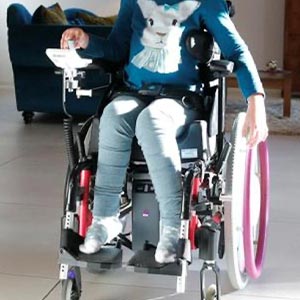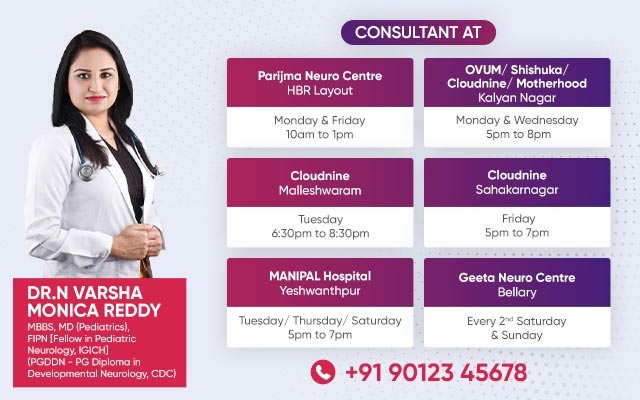Spinal muscular atrophy (SMA) attacks motor nerve cells in the spinal cord, removing a kid's capacity to walk, eat, or breathe. Spinal muscular atrophy is the No. 1 genetic disease causing the death of infants. Get spinal muscular atrophy treatment in Kalyan nagar from pediatric neurology doctor in Malleshwaram
SMA influences around 1 out of 10,000 children. A deformity in the survival motor neuron gene 1 (SMN1) causes SMA. While functioning normally, this gene produces a protein critical to the function of nerves that control the body's muscles. At the point when this gene is absent or defect, those nerve cells gradually die, prompting to debilitate and sometimes life-threatening muscle weakness.
Kids have muscle weakness or wasting more severe in the trunk and upper legs and arms than in the muscles of the hands and feet. They may likewise experience issues performing the basic life functions, like breathing and swallowing. However, spinal muscular atrophy doesn't influence their ability to think, learn, feel, and connect with others.

How spinal muscular atrophy is diagnosed?
A neurology specialist having special expertise in SMA and pediatric neuromuscular illness will give a comprehensive assessment of your child.
A detailed neurological test will be conducted and any past tests reviewed. The following diagnostic tools may then be recommended:
- Blood Test: This shows if there are erasures or changes of the SMN1 gene. Hereditary testing recognises at least 95% of SMA Types I, II, and III.
- Electromyography: This test records the electrical movement from the brain or spinal cord to a peripheral nerve root that controls muscle function in the arms and legs
- Nerve Conduction Velocity Studies: These tests measure electrical energy by evaluating the nerve's ability to send a signal to the muscles.
- Muscle biopsy: A small needle is placed into the muscle and a sample is taken. This test is utilized to diagnose neuromuscular disorders and may likewise reveal if a child is a carrier of a defective gene
What causes spinal muscular atrophy in a kid?
SMA can be caused by a faulty or missing gene known as SMN1. SMA is an autosomal recessive disease. This implies that both boys and young girls are equally impacted. Furthermore, it implies that one copy or missing copy of the faulty gene from each parent are required to cause the condition.
If both parents are carriers, they have a 1 in 4 chance for a kid with SMA with every pregnancy. Carrier testing is generally done only if a kid in the family is known to have SMA.
What are the symptoms of SMA?
The signs of SMA can fluctuate. Some babies with SMA are"floppy" and don't figure out how to roll or sit at the expected age. Old child may fall more frequently than kids of a similar age or experience difficulty lifting things.
How is spinal muscular atrophy diagnosed in a child?
SMA is sometimes hard to diagnose. The doctor will get some information about the signs and symptoms of your child, past health, and your family's health history. Your kid will have a physical exam. Your kid may likewise have tests, like:
- Muscle biopsy
- Serum CPK level
- Electromyogram (EMG)
- MLPA
How is spinal muscular atrophy treated in a kid?
Treatment will rely upon your kid’s symptoms, age, and general health. It will likewise rely on how extreme the condition is.
There is no complete cure for SMA. The treatment goals are to:
- Prevent breathing issues in kids who have affected breathing muscles
- Render breathing support with a machine when required
- Render nutritional support to kids whose swallowing muscles are affected.
Your kid might have the option to try other SMA treatments that are tested in clinical trials. Converse with your kid's doctor to see whether there are any clinical trials you ought to consider.
Consult with your pediatric doctor, Dr. N. Varsha Monica Reddy about the risks, benefits and possible side effects of all treatment.

